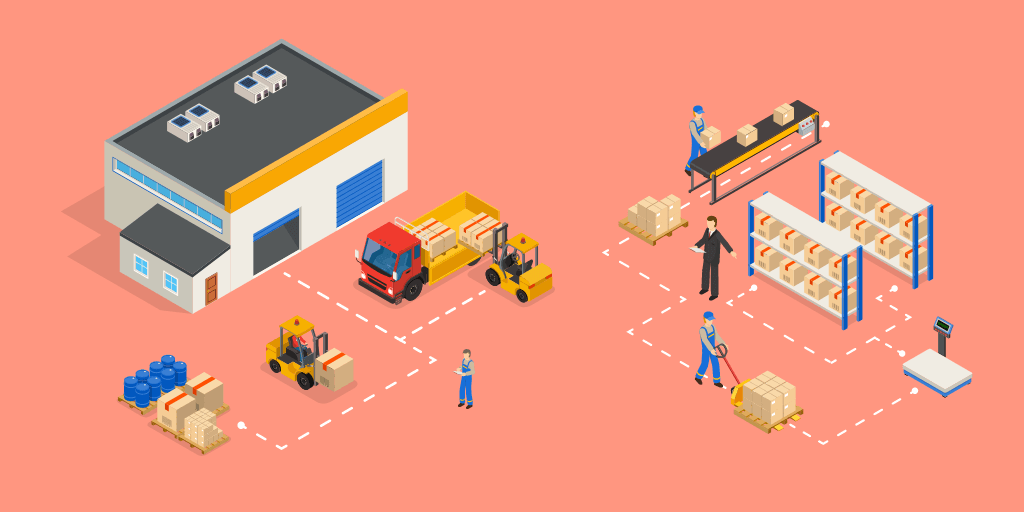In the fast-paced world of commerce, the wholesale industry serves as the backbone, linking manufacturers and retailers to provide a seamless supply chain. As the industry continues to evolve, wholesale businesses are embracing new strategies and technologies to stay ahead of the curve and drive success. One such trend that is revolutionizing the wholesale landscape is global sourcing, a practice that allows businesses to access a wide array of products and expand their market reach.
In this article, we will delve into the exciting wholesale industry trends and explore the concept of global sourcing, understanding its impact and benefits for businesses. Let’s embark on this journey together, discovering how these trends are reshaping the wholesale industry and driving growth and prosperity.
Understanding Global Sourcing
Global sourcing, in its essence, involves procuring goods and services from suppliers across the world, rather than solely relying on local sources. This strategy has gained momentum over the years due to the advent of technology and increased connectivity, making it easier for businesses to access products and services from international markets.
Embracing global sourcing enables wholesalers to tap into a vast pool of suppliers, often offering competitive prices, diverse product ranges, and unique innovations. This practice empowers businesses to stay agile, adjust to market demands swiftly, and maintain a competitive edge.
Wholesale Industry Trends
Trend 1: Streamlined Supply Chain Management
Efficient supply chain management is critical for wholesale businesses to ensure the timely delivery of products and maintain customer satisfaction. With the help of advanced technologies like blockchain and IoT, wholesalers can optimize their supply chain processes, from sourcing raw materials to delivering the final product to retailers.
By implementing smart supply chain solutions, wholesalers can track inventory in real-time, identify potential bottlenecks, and reduce operational costs. A streamlined supply chain translates to faster order fulfillment, reduced inventory holding costs, and improved overall efficiency.
Trend 2: Personalization and Customer-Centric Approach
In the digital age, customers expect personalized experiences and individualized attention from wholesalers. Businesses that understand and adapt to this trend are more likely to build lasting relationships and foster brand loyalty.
Through data analytics and customer segmentation, wholesalers can gain valuable insights into their customers’ preferences, purchase patterns, and pain points. Armed with this knowledge, they can tailor their product offerings and marketing strategies to cater to the unique needs of each customer segment.
Trend 3: Embracing E-Commerce and Online Marketplaces
The rise of e-commerce has significantly impacted the wholesale industry, opening up new avenues for growth and expansion. Many wholesalers are now embracing online marketplaces to reach a broader audience and extend their market reach.
E-commerce platforms allow wholesalers to showcase their product catalogs, connect with retailers worldwide, and streamline the ordering process. Additionally, the integration of online marketplaces with inventory management systems simplifies the tracking of product availability, ensuring a seamless shopping experience for customers.
Trend 4: Sustainability and Ethical Sourcing
As environmental concerns and ethical considerations take center stage, wholesalers are increasingly prioritizing sustainability in their sourcing practices. Consumers are now more conscious of the environmental and social impact of the products they purchase, prompting wholesalers to source from suppliers that adhere to responsible and ethical practices.
By aligning with sustainable suppliers, wholesalers can attract environmentally conscious customers and contribute positively to society. Transparent and ethical sourcing practices foster trust and loyalty among consumers, enhancing the brand’s reputation.
Trend 5: Leveraging AI and Data Analytics
Artificial Intelligence (AI) and data analytics have revolutionized the way businesses operate, and the wholesale industry is no exception. Wholesalers can harness the power of AI to optimize inventory management, predict demand fluctuations, and automate repetitive tasks.
Data analytics allows wholesalers to make data-driven decisions, identify market trends, and uncover hidden opportunities for growth. By leveraging these technologies, wholesalers can make informed choices that lead to increased efficiency and profitability.
Benefits of Embracing Wholesale Industry Trends and Global Sourcing
The wholesale industry trends discussed above, along with the adoption of global sourcing practices, offer a plethora of benefits for businesses looking to thrive in the modern marketplace. Let’s explore these advantages:
Expanded Product Range
Global sourcing opens up access to a diverse range of products from various regions worldwide. Wholesalers can curate an extensive product catalog that caters to the unique demands of their target markets. This diversity not only attracts retailers but also allows wholesalers to adapt quickly to changing consumer preferences.
Cost Savings
Sourcing products from international suppliers often results in cost savings due to differences in labor costs, raw materials, and production efficiencies. Wholesalers can capitalize on these cost advantages to offer competitive prices to retailers, driving increased sales and market share.
Market Expansion
Embracing global sourcing enables wholesalers to expand their market reach beyond their domestic boundaries. By partnering with international retailers, wholesalers can access new customer bases, facilitating business growth and brand recognition on a global scale.
Improved Product Quality and Innovation
Collaborating with global suppliers introduces wholesalers to innovative products and cutting-edge technologies. Exposure to diverse markets and cultures encourages the development of unique products that resonate with consumers, fostering a reputation for quality and innovation.
Risk Diversification
Relying solely on local suppliers can leave wholesalers vulnerable to supply chain disruptions caused by natural disasters, political instability, or economic fluctuations in a particular region. By diversifying their supplier base across the globe, wholesalers can mitigate these risks and ensure a more resilient business model.

Conclusion
What is global sourcing? As the wholesale industry evolves, embracing global sourcing and other progressive trends becomes paramount for businesses striving for growth and success. Streamlined supply chain management, customer-centric approaches, and e-commerce integration are just a few of the many strategies that wholesalers are adopting to thrive in the digital age.
By recognizing the benefits of global sourcing and understanding how it complements the overarching wholesale industry trends, wholesalers can position themselves as leaders in their respective markets. Embracing change, innovation, and sustainable practices will undoubtedly pave the way for a thriving future in the wholesale industry.
With the power of these trends, the wholesale industry is well on its way to a brighter, more prosperous tomorrow. As businesses continue to harness the potential of global sourcing, we can expect a more interconnected and vibrant wholesale landscape that meets the diverse needs of consumers and retailers alike. Embrace these trends, seize the opportunities they present, and set sail on a journey of growth, profitability, and success.




